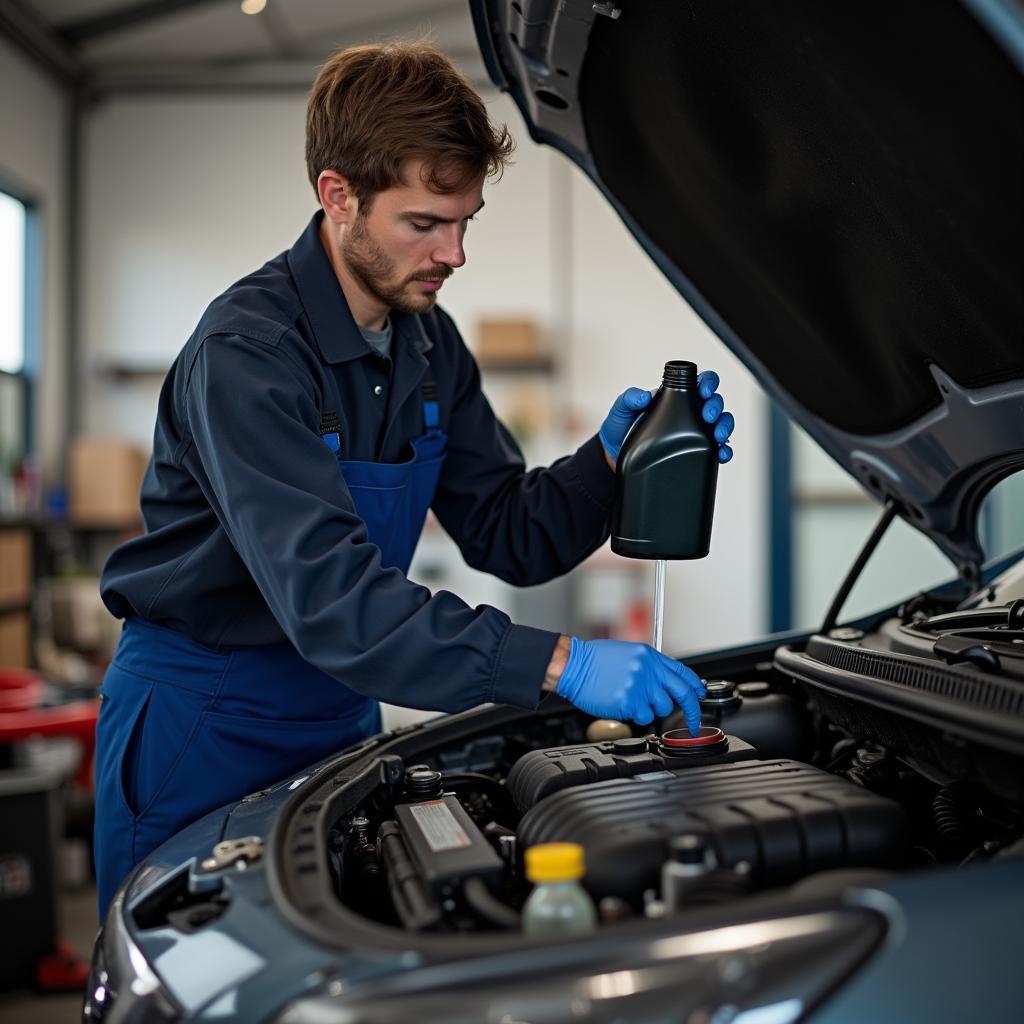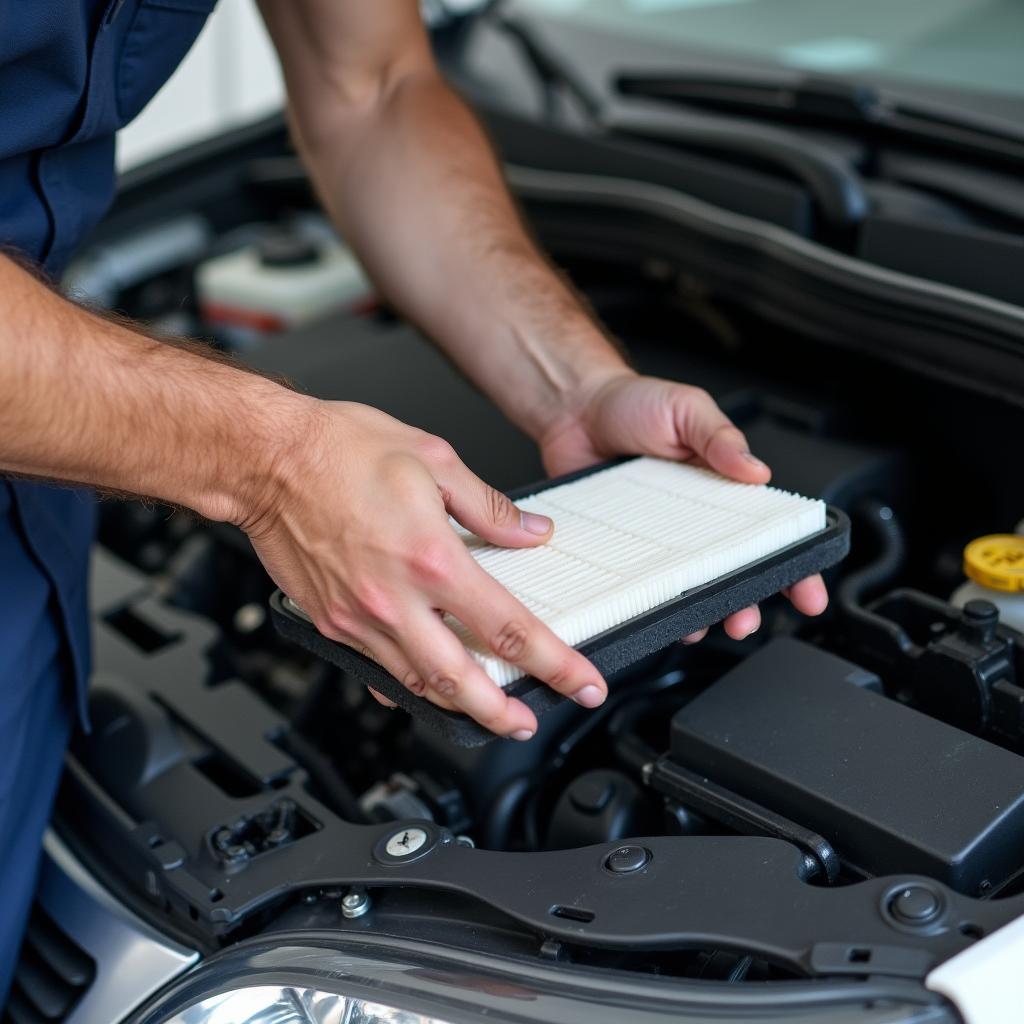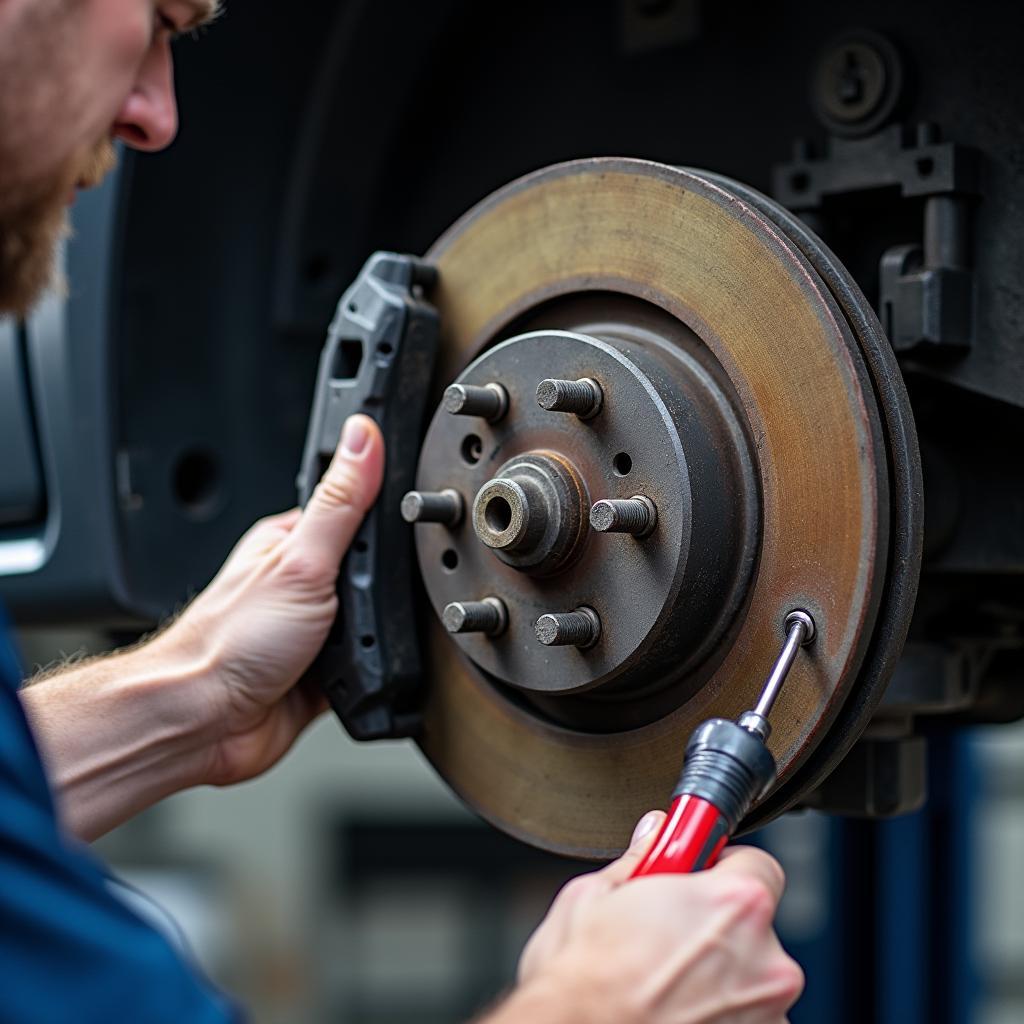Keeping your car in top shape is crucial for its longevity and your safety on the road. Regular car maintenance is not just about preventing breakdowns; it also ensures optimal performance and fuel efficiency. This comprehensive guide delves into the essential aspects of Autoserve Car Maintenance, covering everything from routine checkups to more complex repairs. Whether you’re a car owner eager to learn more about DIY maintenance or a mechanic seeking to enhance your knowledge, this article will provide valuable insights and practical tips.
Understanding Autoserve Car Maintenance: The Basics
“Autoserve car maintenance” encompasses a wide range of tasks designed to keep your vehicle running smoothly. These tasks can be categorized into preventive maintenance, which focuses on preventing issues, and corrective maintenance, which involves addressing existing problems. Preventive maintenance is often more cost-effective in the long run as it minimizes the risk of costly repairs.
Preventive Maintenance: The Cornerstone of Car Care
Preventive maintenance involves regular inspections, checks, and servicing to ensure your car remains in optimal condition. Here are some key aspects of preventive maintenance:
- Oil Changes: The oil in your engine lubricates moving parts, preventing wear and tear. Regular oil changes are essential for maintaining engine health.
 Oil change service at an auto shop
Oil change service at an auto shop - Tire Rotation and Alignment: Tires wear unevenly over time, which can lead to handling issues and reduced fuel efficiency. Rotating tires and aligning them helps to distribute wear evenly, extending their lifespan.
- Air Filter Replacement: The air filter prevents dust and debris from entering the engine, ensuring clean air intake for combustion. A clogged filter can reduce engine performance.
 Replacing an air filter in a car
Replacing an air filter in a car - Brake Inspection and Maintenance: Brakes are crucial for safety. Regular inspections and replacement of worn brake pads and rotors are essential.
 Inspecting brake pads during car maintenance
Inspecting brake pads during car maintenance - Fluid Levels: Check engine coolant, brake fluid, power steering fluid, and transmission fluid regularly. Low fluid levels can lead to overheating, malfunctions, and other problems.
- Battery Check: A weak battery can lead to starting issues. Regular battery checks are crucial, especially in cold weather.
Corrective Maintenance: Addressing Existing Issues
Corrective maintenance involves addressing existing problems with your car. This may include:
- Engine Repairs: If you’re experiencing issues with your engine, such as reduced power or strange noises, corrective maintenance will be necessary to diagnose and repair the problem.
- Transmission Repairs: Transmission issues can be complex and require specialized expertise. If you notice slipping gears or other transmission problems, seeking professional help is crucial.
- Electrical Repairs: Problems with your car’s electrical system can range from a blown fuse to a faulty alternator. A qualified mechanic can diagnose and repair electrical issues effectively.
- Bodywork Repairs: Dents, scratches, or other damage to your car’s body can affect both aesthetics and safety. Corrective maintenance will involve repairing or replacing damaged body panels.
Essential Car Maintenance Tips for Owners
Here are some practical tips that car owners can follow to ensure proper autoserve car maintenance:
- Read Your Owner’s Manual: This manual provides valuable information about your specific car model, including recommended maintenance schedules and troubleshooting tips.
- Keep a Maintenance Log: Keep track of all maintenance tasks, including dates, mileage, and any work performed. This log will help you stay on top of your car’s needs.
- Don’t Ignore Warning Lights: If your dashboard displays warning lights, don’t ignore them. These lights are designed to alert you to potential problems that require attention.
- Be Proactive: Instead of waiting for problems to arise, be proactive about maintaining your car. Regular inspections and maintenance will help to prevent major issues.
The Importance of Regular Autoserve Car Maintenance
“Regular autoserve car maintenance is not just about keeping your car in good working order; it’s about ensuring your safety on the road,” explains Mike Johnson, an experienced automotive technician. “Ignoring routine maintenance can lead to dangerous situations and costly repairs down the line.”
John Williams, a long-time car enthusiast, echoes this sentiment: “I used to think that car maintenance was an unnecessary expense, but I learned the hard way. Ignoring simple things like oil changes and tire pressure checks cost me more in the long run. Now, I’m a firm believer in preventive maintenance.”
Frequently Asked Questions about Autoserve Car Maintenance
Q: How often should I get an oil change?
A: The frequency of oil changes varies depending on the type of oil used and your driving habits. Consult your owner’s manual or your mechanic for specific recommendations.
Q: What are the signs of a bad battery?
A: Some common signs of a failing battery include slow cranking, dim headlights, and an unusual clicking sound when starting the car.
Q: What are the benefits of regular tire rotations?
A: Tire rotations help to distribute wear evenly, extending the lifespan of your tires. This can save you money on tire replacements in the long run.
Q: Can I perform basic autoserve car maintenance myself?
A: Some basic tasks, like oil changes and air filter replacements, can be performed by car owners with basic mechanical knowledge. However, more complex tasks should be left to a qualified mechanic.
Q: How often should I have my car inspected?
A: It’s generally recommended to have your car inspected annually or every 12,000 miles, whichever comes first.
Conclusion
Autoserve car maintenance is essential for keeping your vehicle running smoothly and safely. By following the tips and advice outlined in this guide, you can extend your car’s lifespan, reduce the risk of breakdowns, and save money in the long run. If you’re not sure about a particular maintenance task, don’t hesitate to contact a qualified mechanic.
For expert autoserve car maintenance services and advice, contact AutoTipPro at +1 (641) 206-8880 or visit our office at 500 N St Mary’s St, San Antonio, TX 78205, United States.





Leave a Reply